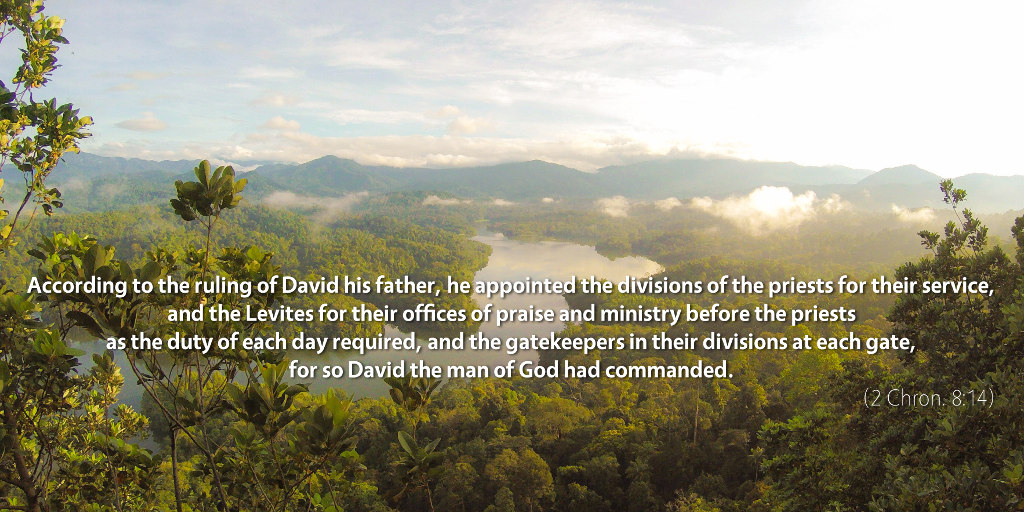Bible Readings for December 8th
2 Chronicles 8 | 3 John 1 | Habakkuk 3 | Luke 22
In our meditations on 1 Chronicles, we looked at the ways in which the Chronicler depicts David without many of his flaws recorded in 1 and 2 Samuel. In the same way, we also find that the Chronicler depicts Solomon here in 2 Chronicles without his flaws, so that the description of Solomon’s golden age—while it remains below the reign of David—stands without the blemishes we find in 1 Kings.
First, we find in 2 Chronicles 8:11 an explanation for why Solomon moves Pharaoh’s daughter to the house that he built for her. In 1 Kings 9:24, we read this: “But Pharaoh’s daughter went up from the city of David to her own house that Solomon had built for her.” Now, however, we find that this is actually a deliberate distinction drawn by Solomon himself: “Solomon brought Pharaoh’s daughter up from the city of David to the house that he had built for her, for he said, ‘My wife shall not live in the house of David king of Israel, for the places to which the ark of the LORD has come are holy’” (2 Chron. 8:11). Here in 2 Chronicles, it is clear that Solomon deliberately separates his Egyptian wife from the holy places where the ark of Yahweh has been.
Second, in 2 Chronicles 8:12–15, we find a lengthy description that Solomon carries out the duties of the burnt offerings as Moses had commanded, according to each day’s requirement, and he also appoints the divisions of priests and Levites for their service as David had commanded. Solomon keeps every bit of the law handed down to him by Moses and by his own father, David.
Part of what these two narratives imply is that Solomon—despite the greatness of his wealth, fame, and glory—is nevertheless subservient to his father’s rule. Where David became a new Moses, reorganizing the worship duties of the Levites, Solomon merely carries out the commandments handed down to him by David and by Moses.
But also, we see an idealized version of Solomon, just as we had seen an idealized version of David. We read nothing in 2 Chronicles of Solomon’s eventual apostasy that we saw in 1 Kings 11, and as with David, the reason for this is not to whitewash Solomon’s legacy. Rather, it is to cast our vision forward, anticipating the day when a greater golden age would come, marked with prosperity and wealth and wisdom—and not marred by sin—exceeding even the age of Solomon himself. The books of Chronicles are teaching us to long for David’s greater Son, and we learn here that Solomon is not that Son. The ultimate Messiah who will not only put away sin and death forever but who will also establish a kingdom of peace and prosperity for all eternity is still to come.
Podcast: Play in new window | Download (4.3MB) | Embed
Subscribe: Apple Podcasts | RSS | More

Scripture quotations are from The Holy Bible, English Standard Version copyright © 2001 by Crossway Bibles, a division of Good News Publishers. Used by permission. All rights reserved.


